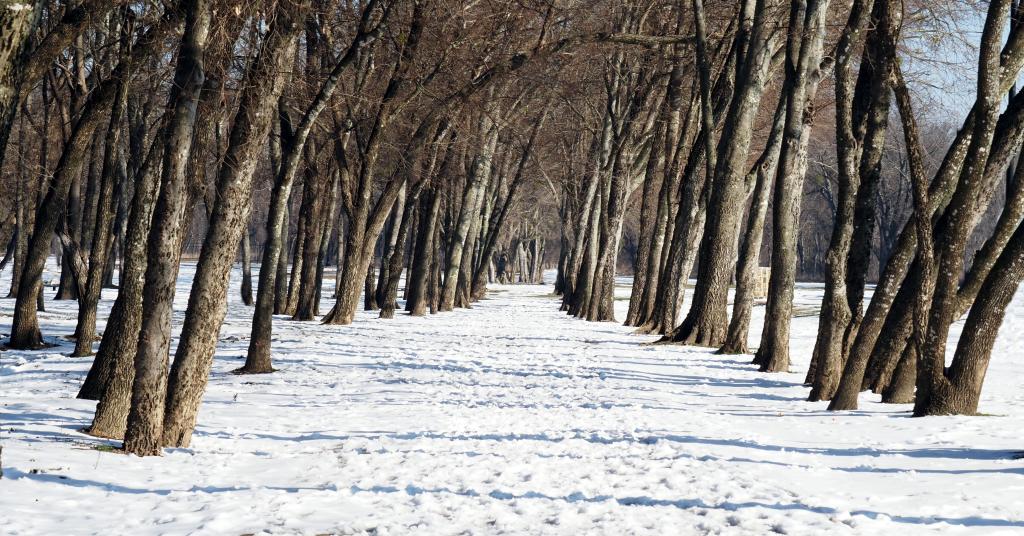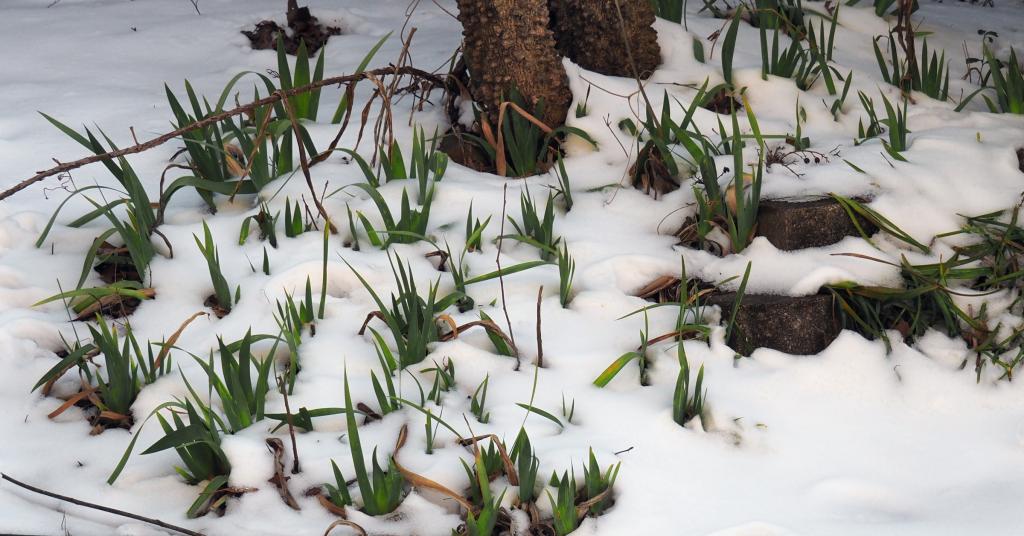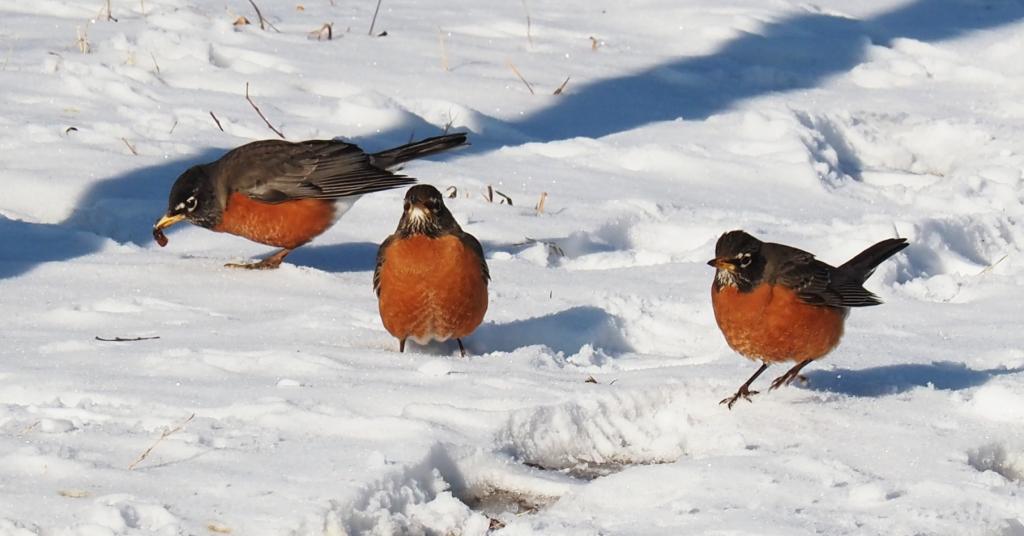I remember when I saw the promos for Game of Thrones. The first thing that grabbed my attention was the idea that this was a world where Winter was of variable length and could last for many years. My initial reaction was “that’s not possible” – because axial tilt and revolution period and all that stuff.
I know, it’s fantasy. But I was a very literal minded kid and I never completely grew out of it. I had to consciously and intentionally suspend my disbelief so I could enjoy the show. Which I did… up until the last season, anyway. That’s a rant we don’t have time for today.
I understand that Winter can be harsh or mild, and that it can last longer some years than others – but days or weeks longer. I couldn’t conceive of a Winter that lasted for years.
That was before the Winter that began in January 2017 and lasted for four years – a Winter that appears to have been followed by a false Spring.
That was before the Winter that began in February 2020 and has no sure end in sight, a Winter that has killed five and a half million people worldwide and that has amplified the divisions in this country to a level not seen since I was a small child.
Sometimes Game of Thrones looks less like fantasy and more like prophecy.
The holy day of Imbolc is coming on February 1st. I like Imbolc, though to be honest I like all the holy days on the Wheel of the Year. But this year I need Imbolc.
This year I need the Promise of Spring.
The two themes of Imbolc
Although Imbolc dates to antiquity in Ireland, the Wheel of the Year is a modern invention. Periodically we debate its relevance, but we always end up keeping it because it works well for most modern Pagans. One of its shortcomings is that it romanticizes the Iron Age agricultural cycle. I grew up on a small farm and I know first-hand that agriculture is a lot of work – there’s nothing romantic about it. Still, its themes are often meaningful and helpful, and it reinforces the idea of time as cyclical, not linear.
Imbolc has two main themes. Last year I focused on the theme of cleansing, as we tried to sweep away all the bad of 2020 and start fresh. That effort was not entirely successful. Though to be fair, my 2021 was better than my 2020. Partial success is still success, something I wish more of the politicians I support understood.
This Imbolc I need to focus on the theme of the Promise of Spring.
The mythology of Imbolc points out that while this time of year is typically the worst of Winter, by February 1st we’re six weeks past the Winter Solstice. The days are noticeably longer. Here in North Texas we’ve gained 38 minutes of daylight. In Ireland it’s 89 minutes. A few plants are starting to send new shoots above ground – above the snow (where there is snow, anyway).
Nature is reminding us that Spring is coming.
When will Spring arrive?
When will it get here? According to American lore (by way of Germany) if the groundhog sees his shadow on February 2nd, we’ll have six more weeks of Winter – meaning Spring will get here in the middle of March. If the day is overcast and there is no shadow, Spring will be here sooner. Either way, Imbolc celebrates the fact that Winter will be over soon.
When will our current Winter – our Winters – be over?
There is no groundhog that predicts the end of pandemics. Several astrologers I follow have said that 2022 is going to be another difficult year, although the second half of the year should be better than the first half, and by 2023 things should be significantly better. This matches my own divination for 2022.
But Nature – and history – tell us that no plague lasts forever, and while Covid-19 will never completely go away, at some point it will cease to be the major disruption it is.
Spring is coming, even if we don’t know when it will get here.
Living in a Winter of Westeros length
As for our political Winter, I’m significantly less confident. Because “Spring” isn’t about electing candidates from the right political party. It’s about protecting the right to vote, and the right to have all the votes counted. It’s about insuring access to healthcare, including reproductive care. It’s about protecting the very concept of democracy – and the concept of functional government.
These things are important. We have an obligation to be engaged citizens. And yet, when I pray and meditate, what I hear from my Gods and ancestors is “take care of yourself and take care of your family” (which, of course, means my family of blood and also my family of choice).
I fear this means that things are going to get worse before they get better. This may very well be a Winter of Westeros length. Or longer.
And still, Imbolc is the Promise of Spring.
Plant a different field this year
Perhaps, if Spring will not come in the world of politics, we can bring Spring to ourselves. We can’t save the world – and that breaks my heart – but we can save our part of it. The law is regressing, but culture is still moving forward, with more people becoming more open, more caring, and more inclusive.
Spring is cause for celebration, but Spring is also a time of labor. Sharpening tools, preparing the ground, preparing the seeds, planting, moving animals to pasture – Spring is one of the busiest times in the agricultural cycle. Imbolc tells us to get ready to go to work.
Only this year, perhaps we need to plant some different crops, in some different fields.
Mind you – I’m not abandoning the political process. It’s too important, and those whose values are antithetical to mine vote at a very high rate. We can do no less.
But if we count on politics to save us, we will always be disappointed.
The Promise of Spring
Imbolc is the Promise of Spring. It reminds us that no matter how cold it is right now, warmer days are coming. The snow will melt. The trees will bud and begin to produce new fruit.
And Imbolc also reminds us to prepare for our coming labors. There’s a lot of work ahead of us, whether it’s in the usual fields or in fields that are new to us.
This year I need Imbolc.
This year I need the Promise of Spring.


















